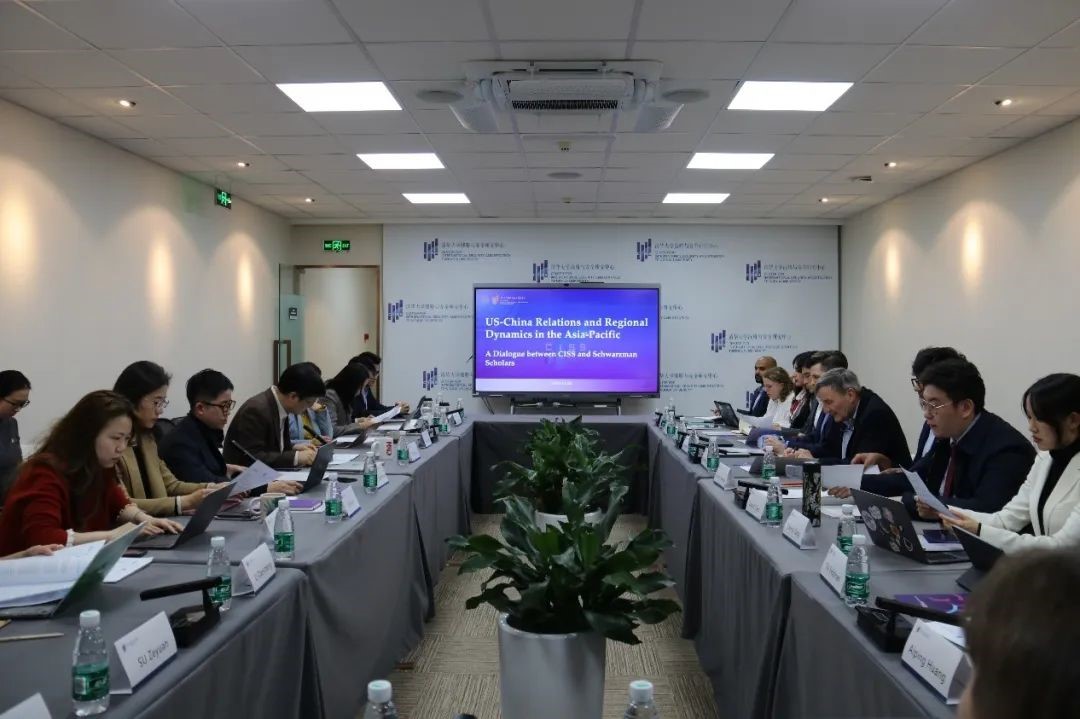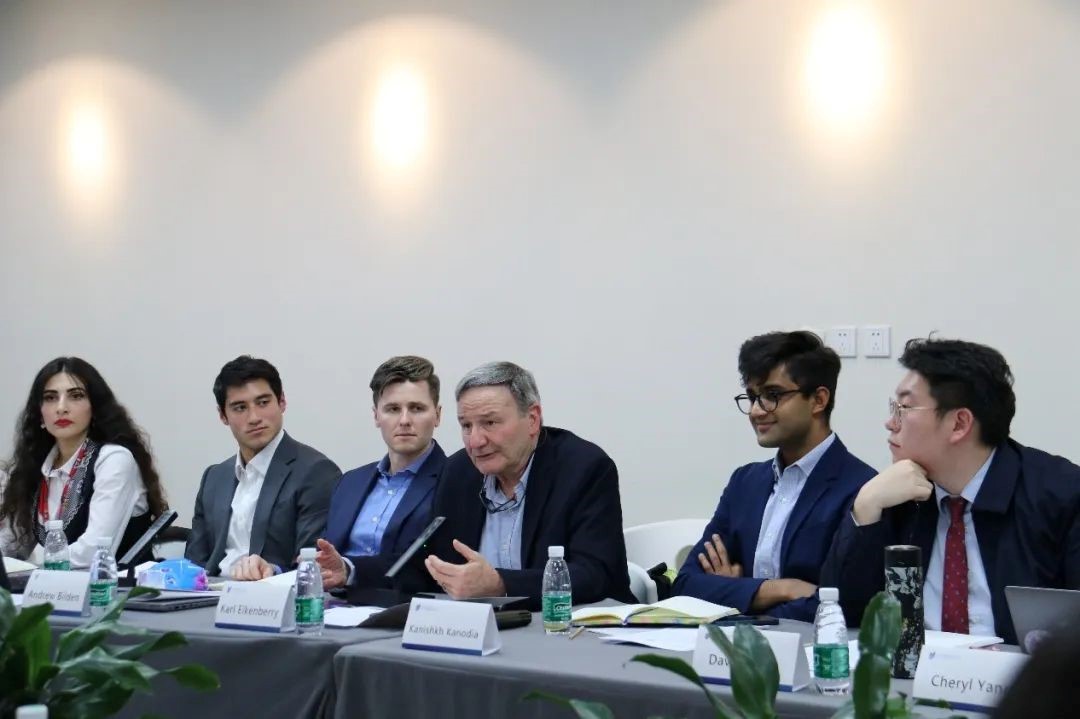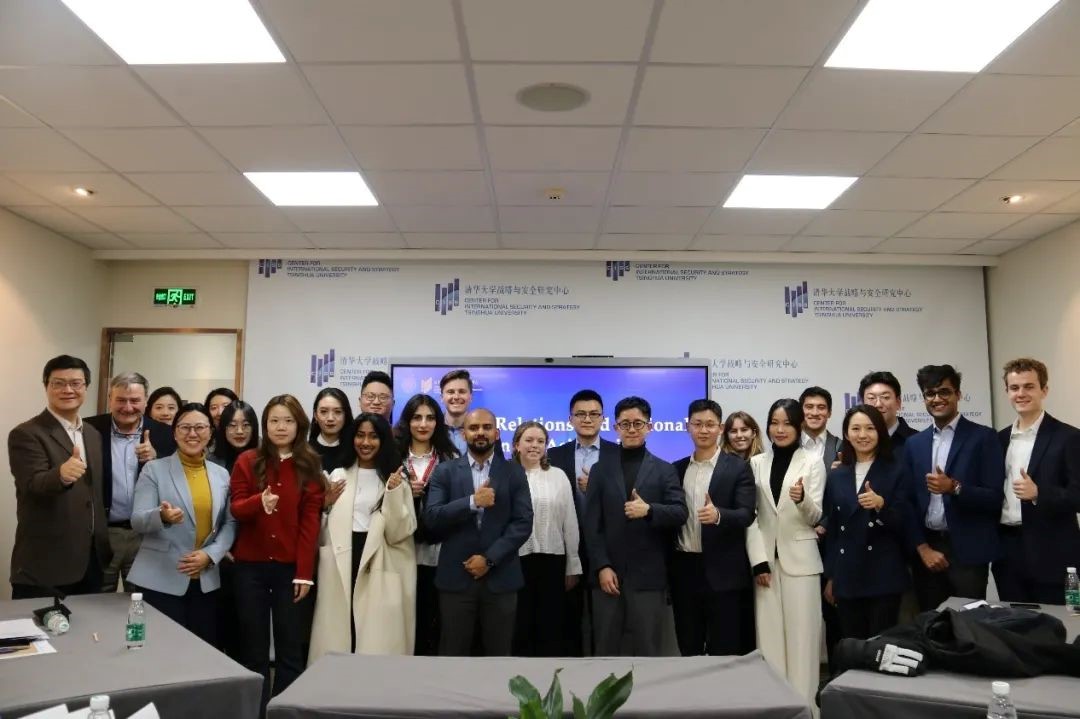On December 26, scholars from Schwarzman College visited the Center for International Security and Strategy (CISS) of Tsinghua University and had a dialogue with representatives of CISS experts, CISS Youth, and PhD students from Tsinghua University. The dialogue was moderated by Sun Chenghao, Fellow of CISS. Da Wei, Director of CISS, and Karl Eikenberry, former U.S. Ambassador to Afghanistan and Professor of Schwarzman College of Tsinghua University, delivered welcoming speeches. Xiao Qian, Deputy Director of CISS, gave a concluding speech, and Dong Ting and Shi Yan, Fellows of CISS, attended the event and participated in the discussion.

Centering on “U.S.-China Relations and Regional Dynamics in the Asia-Pacific,” scholars from both sides held discussions on “Regional and Maritime Security,” “People-to-people Exchanges,” and “Artificial Intelligence (AI) Cooperation.” In the first section, participating scholars analyzed the six factors affecting “maritime security around China,” the necessity of maintenance of the rule of law and confidence-building measures in the Asia-Pacific region, the situation on the Korean Peninsula, the challenges to regional security posed by the strengthened trilateral cooperation between U.S., Japan, and South Korea, and differences between the concepts of “Asia-Pacific” and “Indo-Pacific.”

In the second section, the participating scholars pointed out the importance of stepping out of the “comfort zone,” understanding group differences, and maintaining empathy in people-to-people exchanges, discussed the recent situation of bilateral exchanges between China and the U.S. and the development of U.S. soft power in the Asia-Pacific region, and put forward suggestions to promote the institutionalization construction of China-U.S. people-to-people exchanges.
In the third section, they reviewed the impact of AI on international politics, economy, and military, considered it important for China and the U.S. to cooperate and control competition in the field of AI, and analyzed the obstacles and challenges faced by the cooperation between the two countries in terms of strategic gaming, technical standards, intellectual property rights, and privacy protection. The scholars specifically compared the differences in the decision-making process, regulatory methods, and extent of AI regulation between China and the U.S. They then explored possible priority areas for AI cooperation between China and the U.S.
Finally, both sides expressed their expectations for further strengthening youth exchanges and enhancing understanding and agreed to organize a follow-up dialogue event in 2024.

The dialogue was joined by scholars from Schwarzman College including Aiping Huang, Ben Bograd, Cheryl Yang, David Chen, Eka Khorbaladze, Meghan Murphy, Nainika Sudheendra, Noel Therattil, Ruby Scanlon, and Tal Feldman, and youth representatives from CISS including Huang Ying and Niu Qiyang, PhD students from Department of International Relations of Tsinghua University, Zhao Xiuye and Li Dancheng, PhD students from School of Public Policy and Management of Tsinghua University, and Liu Yuan, a master student from University College London.
